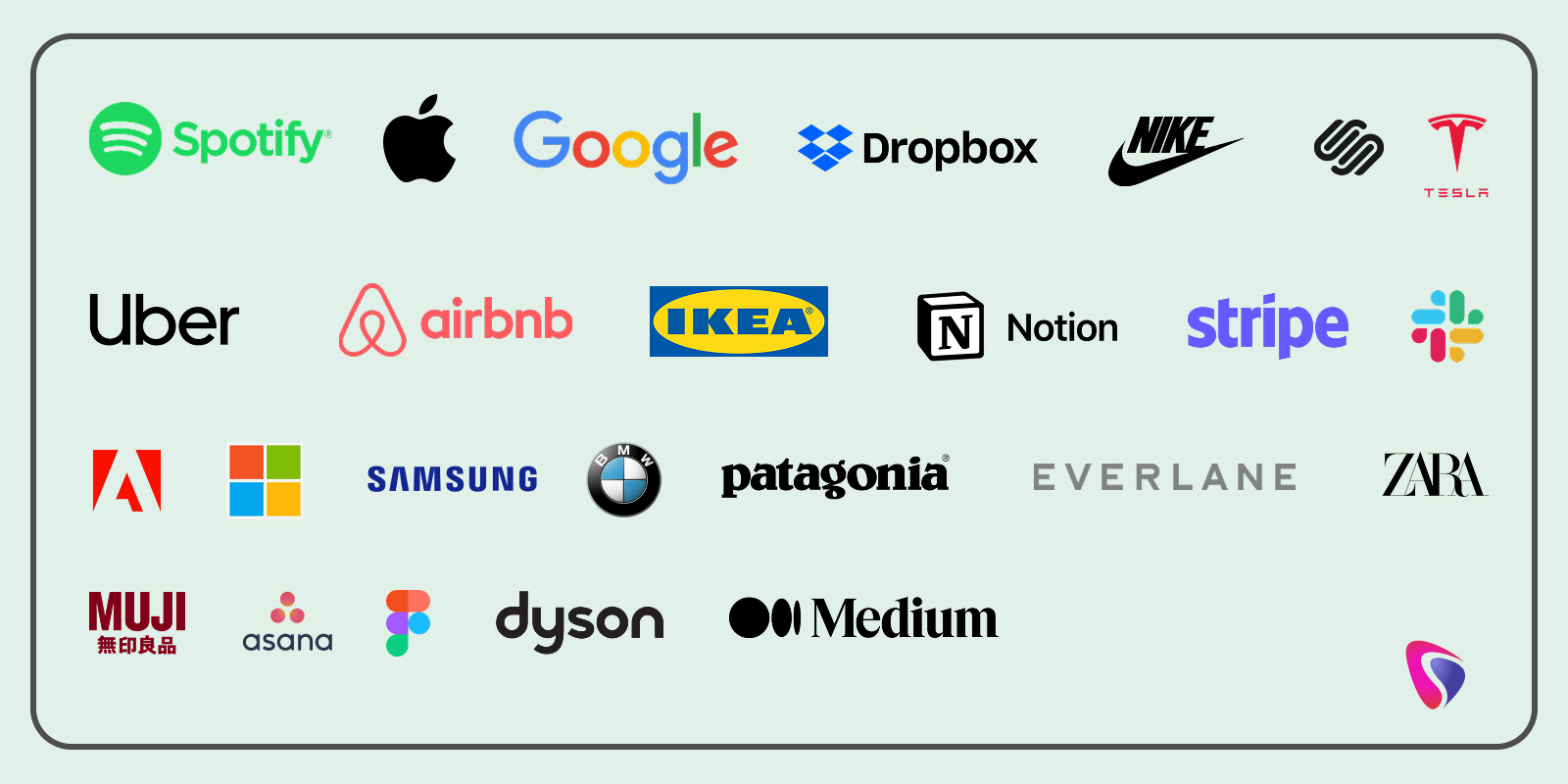
It has been nearly three years since ChatGPT emerged on the scene. Not long ago, AI was merely a buzzword, often perceived as a threat to job security. As of 2025, 66% of people use AI regularly, indicating that over two-thirds of the global population engages with this technology. While AI may have displaced jobs involving repetitive tasks, it has simultaneously generated new opportunities for professionals skilled in AI, machine learning, and related technologies.
Yes, there is a huge demand for professionals with extensive knowledge in artificial intelligence (AI). However, beginners may be uncertain about how to embark on their careers in this field. It is essential to acknowledge that AI is a vast and continually evolving field. Additionally, there is a considerable amount of misinformation and hype surrounding it. What degree is most beneficial for learning about AI? Will obtaining such a degree guarantee a high-paying job? Are there introductory courses available, such as AI for beginners?
We understand that queries and a lack of clarity on AI can be overwhelming for beginners. This blog will cover several key aspects of AI, including a roadmap for learning AI, job opportunities in AI, common mistakes to avoid, and more. Let’s get started.
What is AI?
AI, or artificial intelligence, is an evolving technology. Humans train AI models to think and perform tasks similarly to how humans do. By learning from various scenarios and tasks, an AI model can execute repetitive tasks like data entry and even make informed decisions akin to those made by humans.
However, their ability to perform repetitive tasks depends on how it's trained, including training objectives, task specificity, data accuracy and quantity, model architecture, and more. Artificial intelligence has become an integral part of our lives. Whether it’s self-driving Tesla cars, voice assistants like Alexa, chatbots, or personalized recommendations in streaming applications, AI has made its way into personal and professional spheres.
Businesses recognize that they can enhance productivity, improve accuracy, and increase revenue through the adoption of artificial intelligence (AI). Unsurprisingly, sectors such as IT, healthcare, retail, education, manufacturing, finance, and insurance have embraced AI.
Why Should One Learn AI?
Below are several reasons why one should learn AI
- To begin a career in artificial intelligence, it is important to recognize that this is a rapidly evolving field.
- For individuals who already hold a job, acquiring AI skills can facilitate the automation of routine tasks and enhance opportunities for career advancement.
- Many individuals may be curious about artificial intelligence (AI). Understanding AI can help them grasp its functionality and determine its potential applications in their lives.
- An excellent way to future-proof one’s skills.
- Enhances problem-solving skills by educating individuals on how to analyze problems, develop solutions, and think logically. Individuals can apply these skills in other roles.
- Entrepreneurs and innovators seeking to build innovative and scalable solutions should consider learning about AI.
- Helps assess the societal impact and ethical implications of AI while advocating for its responsible use within the company/community.
- Ensures companies remain competitive in a global economy.
Is AI Hard to Learn?
Due to the widespread hype and misinformation surrounding artificial intelligence (AI), many people perceive it as a complex and obscure technology. In reality, while AI does require a significant amount of initial learning, beginners can effectively grasp its concepts and make substantial progress with the right resources and comprehensive guidance. Experts recommend starting with the fundamentals of how AI operates, understanding data-driven learning, and then gradually advancing to more complex concepts.
Types of AI
We can categorize artificial intelligence (AI) into three main areas: capabilities, functionalities, and technologies. Below is a brief explanation of each category.
1. Capabilities
- Narrow AI
This AI is ideal for basic applications, such as facial recognition and chatbots. While narrow AI is innovative and widely used, its capabilities remain limited.
- General AI
Thinks and learns like humans. It understands concepts, learns new skills, and solves problems without human intervention.
- Superintelligent AI
Envisions a potential future in which artificial intelligence surpasses human intellect, not only in executing tasks but also in problem-solving, creativity, and developing a profound understanding of complex concepts. Currently, such AI does not exist.
2. Technologies
- Machine Learning
ML is a subset of artificial intelligence (AI) that learns from data without requiring extensive programming. It serves as the foundational component for most Machine Learning Tools.
- Deep Learning
Deep learning is a subset of artificial intelligence (AI) that utilizes multiple layers of neural networks. By learning from vast volumes of data, deep learning serves as the foundation for various applications, including voice assistants and facial recognition systems.
- Natural Language Processing
Understands and responds to simple human language. Forms an integral part of chatbots and translators.
- Robotics
Includes the creation of robots powered by AI and using computers to perform tasks with/without human guidance.
- Computer Vision
Leverages machines for visual imagery. Plays a vital role in surveillance, healthcare, and quality control.
- Expert Systems
AI-powered rule-based system that provides solutions in specific domains such a medicine or finance.
3. Functionalities
- Reactive Machines
Zero dependence on past interactions, memories, or actions, only instant responses. Examples include IBM’s Deep Blue, spam filters, and Netflix.
- Limited Memory
Relies on past data and interactions for decision making. Current AI, including self-driving cars and virtual assistants, falls under this category.
- Theory of Mind
Advanced AI that is still under development. It understands the emotions, intentions, and beliefs of humans.
- Self-aware AI
Theoretical AI version with independent thoughts, self-awareness, and consciousness.
Job Opportunities in AI
For those who want to make a career in AI, below are the most prized job opportunities in 2025.
1. AI Engineer
What do they do? - AI engineers develop smart systems that enhance the efficiency and speed of business operations while minimizing human effort. Examples of solutions developed by AI engineers include chatbots and recommendation engines. These tools utilize AI models that learn from data and continuously adapt.
Average Salary - $1,30,000 per year.
Key Tools & Skills
- Python, Flask, and Jupiter
- Machine Learning, Generative AI, and NLP
- OpenAI, ChatGPT, IBM Cloud
- Git, APIs, Deployment
Beginner Product Idea
Develop a basic AI chatbot using OpenAI’s API that answers FAQs about a particular product.
2. Machine Learning Engineer
What do they do? - Build and enhance machine learning (ML) models, allowing computers to learn from every experience. Examples of these models include spam filters and image classifiers. Machine learning engineers collaborate with data scientists to optimize the efficiency of algorithms.
Average Salary - $1,25,000 per year.
Key Tools & Skills
- Python, Scikit-learn, and TensorFlow
- NumPy, Pandas, Matplotlib
- Experimentation, A/B Testing
- Model Training and Version Control
Beginner Project
Separate spam and non-spam emails using the Enron Email dataset.
3. Data Engineer
What do they do? - A data engineer gathers unstructured and raw data from diverse sources and constructs data pipelines. These pipelines cleanse and organize the data, enabling teams to make informed decisions.
Average Salary - $115,000 per year.
Key Tools & Skills
- SQL, Python
- Apache Spark and Airflow
- Data Warehousing
- ETL (Extract, Transform, Load) pipelines
Beginner Project Idea
Build a data pipeline that collects weather data using an API, eliminates errors, and transfers it to a local database.
4. Robotics Engineer
What do they do? - A robotics engineer designs and tests robots utilizing machines and computer programs. These robots assist with complex tasks, including hardware and software engineering.
Average Salary - $95,000 per year
Key Tools & Skills
- C++, Python, ROS (Robot Operating System)
- Arduino, Raspberry Pi
- Mechantronics and Computer Vision
Beginner Project Idea
Develop a temperature-monitoring robot using a DHT11 sensor.
5. Software Engineer
What do they do? - Software engineers design and develop applications, games, and systems that people use daily. From visual elements and interactive features to backend logic, software engineers are equipped to manage all aspects of the development process.
Average Salary - $1,10,000 per year
Key Tools & Skills
- JavaScript, Python, and HTML/CSS
- Git, VS Code, and REST APIs
- Agile, Testing, and Debugging
Beginner Product Data
- Build a movie search app using the OMDB API and Angular.
6. Data Scientist
What do they do? - Data scientists filter massive volumes of data to uncover valuable insights related to customer preferences, inventory management, and other areas. They translate complex data into accessible language that enables individuals to understand and utilize it for making informed business predictions.
Average Salary - $1,20,000 per year
Key Tools & Skills
- Python, SQL, and Pandas
- Scikit-learn, Jupyter, and Tableau
- Statistics, Data Visualization, and ML
Beginner Product Ideas
Analyze a public dataset and identify key trends using visualization and basic models.
7-Step Guide to Start a Career in Artificial Intelligence
Beginning a career in artificial intelligence may seem daunting for beginners. But with a detailed and structured guide, even beginners can understand the fundamentals and enhance their knowledge over time.
1. Start with AI Basics
Before writing code or developing AI models, beginners must first understand what artificial intelligence (AI) is and its various applications.
What to Explore in AI?
AI focuses on training machines to emulate human behavior, including thinking, learning from experiences, and executing tasks. Within the expansive field of AI, there are specialized subsets such as Natural Language Processing (NLP), machine learning, robotics, and computer vision.
Types of AI
- Narrow AI is designed to perform specific tasks. Examples include Siri, Alexa, and Netflix, which play movies, stream music, and provide personalized recommendations.
- General AI is a forward-looking concept in which machines may think and reason like humans. While significant advancements are being made, it may take years for this technology to fully mature.
Real-World Use Cases
- Healthcare diagnostics, fraud detection, manufacturing automation, personalized advertisements and recommendations, as well as customer support, are some real-world use cases.
Beginners should explore videos on YouTube and Instagram, listen to podcasts designed for newbies, and review educational materials available online. This will provide them with a better understanding of how artificial intelligence is being utilized.
2. Learn Python - Ultimate AI Toolkit
Developers must write code to create AI-powered tools and applications. To accomplish this goal, Python is the most preferred programming language. Many developers choose Python for their projects due to its user-friendly nature, rapid development capabilities, and robust functionality.
Why Choose Python?
- Clean syntax enhances simplicity and readability.
- An extensive ecosystem of libraries, including NumPy, Pandas, PyTorch, and TensorFlow, accelerates development.
- Effective integration with web applications, cloud platforms, and Big Data tools.
- The smooth learning curve is ideal for beginners.
Where to Start?
- Beginners should consider free courses such as freeCodeCamp, Kaggle, and Coursera's Python for Everybody.
- These courses enable individuals to explore Python concepts such as variables, loops, functions, and data types.
- Additionally, there is no need to install any external software on the laptop or desktop. Beginner-level developers can simply type the code on a web page and begin coding.
3. Grab the Fundamentals of Machine Learning
Unlike traditional computers that require detailed instructions to function, machine learning in AI works smartly. It does not necessitate developers to write explicit algorithms. Instead, it analyzes the data provided by users and identifies the underlying rules and patterns.
What are the Basic ML Concepts Beginners Should Learn?
- Supervised Learning - A training model that uses labeled data. Examples include image recognition, spam filtering, and the prediction of house prices.
- Unsupervised Learning - Identifying patterns in data. Examples include customer segmentation, anomaly detection, and dimensionality reduction.
- Reinforcement Learning - Training AI models to make decisions through rewards, penalties, and goal-based learning as a consequence of their actions.
- Neural Networks and Deep Learning - Neural networks and deep learning models mimic the patterns of a human brain, enabling them to perform complex tasks like voice recognition or image tagging.
- Learning Resources - Resources to learn basic machine learning concepts include Andrew Ng’s ML course, Google’s AI Education, or Kaggle Learn.
4. Start With Simple AI Projects
Beginners can acquire AI-related knowledge by reading books, studying concepts, and watching tutorials. However, without applying this knowledge in real-world situations, they may struggle to perform effectively in actual jobs. Engaging in simple or mock projects can help beginners refine their skills and demonstrate their capabilities to potential employers. Here are some examples of project ideas:
- Predict stock prices or property prices.
- Create a spam email detector.
- Build a chatbot using NLP.
- Image classifier using TensorFlow or PyTorch.
- Movie recommendation system.
Beginners must consider building their portfolio by sharing their projects on GitHub.
5. AI Tools and Frameworks
Once a beginner grasps the fundamentals of AI, it is time to learn about advanced tools. These tools speed up development and have cutting-edge features to create innovative products.
Top AI Tools and Frameworks
- TensorFlow - Perfect for production-level deep learning.
- PyTorch - Used to develop real-life products and is popular in academic and research communities.
- Keras - High-level, yet beginner-friendly library to build and train deep learning models. Developers often use it with TensorFlow.
- Scikit Learn - Top pick library for traditional ML algorithms.
- How to Go About It? - Don’t try to learn everything simultaneously. Start with one and move to the next once you have a detailed understanding of it.
6. AI Ethics and Responsibilities
AI can be a game changer for companies; however, it also presents certain risks. Understanding how to use it responsibly is essential for developing fair, transparent, and unbiased solutions.
Points to Consider
- AI Bias - Poor data quality can lead to inaccurate predictions. It is essential to minimize bias in AI models to enhance their effectiveness.
- Explainability - Understand the AI model’s decision-making process.
- AI Regulations - Always stay informed about changes in rules and regulations, as well as the ethical frameworks employed in businesses.
- What Really Matters - Coding is not merely a job; it is a responsibility for those employed by companies. Consequently, organizations expect developers to work with a clear understanding of the ethical implications associated with their use of artificial intelligence (AI).
7. Handle Data Like a Pro
Data quality is crucial when developers create AI systems. Unlike humans, AI cannot distinguish between high-quality and low-quality data; it only recognizes patterns. Poor-quality data can lead to poor decision-making. Therefore, beginners must learn how to collect, clean, visualize, and interpret data. Mastering these skills is essential for those who wish to enhance their artificial intelligence development capabilities.
Key Points to Focus On
- Data Cleansing - Managing incomplete, inconsistent, erroneous, or irrelevant data through the use of tools such as Pandas.
- Exploratory Data Analysis (EDA) - Use matplotlib, seaborn, or Plotirfy to identify patterns.
- Feature Engineering - Transform raw data into meaningful inputs for AI models.
- Why Focus on Data Quality? - Budding developers must understand that data is often unorganized and skewed, for the most part. Clearing data and preparing data for AI model development is typically more time-consuming than the actual development process.
8. AI in the Cloud
AI projects are inherently complex, particularly for enterprise-grade companies. Once an AI solution is developed, developers need to deploy, scale, and monitor it in real-world environments. To accomplish these goals, developers should utilize cloud platforms such as AWS, Google Cloud, and Microsoft Azure. These platforms offer the essential tools and infrastructure required for model training, scalability, data storage and pipelines, monitoring, and more.
Cloud Aspects to Explore
- Pre-trained AI APIs - The best AI APIs include Google Vision and AWS Rekognition.
- AutoML Tools - No-code/low-code platforms to build AI models.
- Model Deployment - Understand how to host and serve AI models using Flask, FastAPI, and other cloud-native services.
- Why Gain Cloud Knowledge? - Companies seek scalable solutions. With relevant experience and knowledge in cloud technology, developers can convert AI models into commercial products.
9. Track Evolving Trends
AI is rapidly evolving, making it essential to stay informed about the latest developments to maximize its potential. Keeping ahead of the curve benefits both businesses and developers. Companies can produce superior products, while developers can enhance their skills and increase their opportunities for securing lucrative positions.
How to Stay Abreast of Current Trends?
- Read reputable blogs, research papers, and industry news channels.
- Subscribe to popular AI newsletters.
- Follow AI experts, researchers, and companies on social media.
- Join online forums and groups like Reddit and Discord.
- Capitalize on AI-powered tools.
Estimated Time Required to Learn AI
The estimated time required to learn artificial intelligence (AI) varies based on an individual's effort, eagerness to learn, and consistency. Below is an example of the progress that beginners should aim for when learning AI.
- 3 to 6 Months - Fundamental knowledge of Python and the ability to work on basic machine learning projects.
- 6 to 12 Months - Know how to build fully functional API applications and prepare yourself for entry-level roles in artificial intelligence.
- 1+ Years - Conducts extensive research and is prepared for specialized or leadership roles in AI development.
Online courses and on-the-job training can be beneficial; however, what truly matters is the individual's capacity to comprehend and apply concepts effectively.
Online courses and on-the-job training can help, but what matters is the individual’s ability to understand and apply concepts.
Goal-Based Learning Path for Beginners
Whether you are a developer, entrepreneur, content creator, or professional in another field, artificial intelligence (AI) can serve as a powerful tool to enhance productivity and distinguish yourself from the competition. Below are the learning paths for individuals aspiring to build a career in AI.
- Content Creation, AI Art, and Storytelling
Leverage AI tools to create content, images, and storytelling through prompts and applications that yield exceptional results.
- Developers - Building Apps, AI Models, Apps, and APIs
Building Applications, AI Models, and APIs
- Entrepreneurs - AI Business Ideas and Automation
Time is a luxury for entrepreneurs. Artificial intelligence (AI) can assist them in automating tasks, launching startups, and developing AI-powered products that can scale over time.
- Professionals - Career Growth & AI Literacy
AI is not exclusively for technology professionals. Individuals in sectors such as healthcare, finance, manufacturing, transportation, education, and others can benefit from AI knowledge and tools. These resources can enhance productivity and offer valuable insights to make career-related decisions..
Top 5 AI Trends for 2025 - 2030
Below are the top 5 trends for 2025 - 2030.
1. Autonomous and Personal AI
AI copilots are about to transform into savvy agents that will aid people in organizing and completing their tasks. Plus, personal assistants will take charge of managing emails, finances, learning, and communication for users.
2. Multimodal Intelligence
Over the years, artificial intelligence (AI) will revolutionize how we generate text, speech, images, video, and code, making the process smoother and quicker. This progress will lead to more personalized and immersive experiences in virtual reality (VR), education, and a variety of other sectors.
3. AI-Powered Enterprises
AI is going to be a key player in the way companies run, helping with everything from automating dull tasks to improving customer service. It takes care of paperwork and emails efficiently, and AI chatbots are ready to tackle customer inquiries. Most importantly, AI can rapidly detect trends, enabling companies to craft personalized AI models.
4. Healthcare Transformation
With the help of artificial intelligence (AI), healthcare organizations can now offer quicker diagnostics, customized treatment plans, and proactive health monitoring for their patients. Additionally, AI can produce synthetic data, which helps to streamline patient diagnosis and treatment while safeguarding their privacy.
Rise of AI and Robotics
As AI and robotics continue to advance, they'll take over the tedious tasks, giving employees the chance to concentrate on strategic initiatives. Thanks to these innovations, AI-powered robots will manage jobs such as lifting, picking, and packing. Homeowners can also benefit from AI by automating cleaning and scrubbing tasks. In the hospitality industry, automation can enhance customer service efficiency.
Final Thoughts
As demonstrated above, companies and professionals need not fear artificial intelligence (AI). Instead, it will enhance our lives and streamline our processes. It is important to recognize that AI is still in its early stages, and over time, it will significantly improve productivity and efficiency. However, individuals who resist change should heed this as a warning; if they fail to adapt to evolving technologies, they risk being replaced by those who embrace and utilize AI successfully.
AI will not replace human jobs; rather, individuals who effectively utilize AI will surpass mediocre professionals. Textbooks, online tutorials, and other resources can be beneficial, but success ultimately depends on the individual. Building a career in AI is achievable, but one must begin with a solid foundation. AI development companies and similar organizations prioritize practical knowledge. Theoretical knowledge is of little value if the individual cannot apply it in real-world situations.
Constant learning, continuous improvement, critical thinking, and the application of these skills in real-life projects will yield significant benefits. Do not expect to master AI on your first day; instead, focus on taking one step at a time. With consistency, hard work, and dedication, the results will come. Start with Microsoft’s AI for beginners tutorial and proceed to paid courses and internships.
FAQs
1. What are the common challenges that individuals face while learning AI?
- AI can be challenging without a solid foundation in algebra, calculus, probability, and statistics.
- The vast scope of artificial intelligence (AI) can be overwhelming for beginners.
- Individuals with limited coding skills in Python and insufficient knowledge of ML libraries can present significant challenges.
- Applying theoretical knowledge to real-life projects can be tricky.
- Finding high-quality real-world data is challenging.
- Interpreting and debugging complex black-box models.
- Limited computing power, such as GPUs or cloud servers.
- Ever-changing tools and trends in the AI landscape.
- Unorganized resources and a lack of guidance can create confusion for beginners.
2. Can I get a job in AI without a degree?
Obtaining a degree can be beneficial, but it is not a requirement. Employers prioritize practical skills, real-world experience, and portfolios. Individuals aspiring to build a career in artificial intelligence (AI) should concentrate on enhancing their proficiency in Python, machine learning frameworks, and data management skills. Engage in open-source projects, begin with free courses, and consider enrolling in paid programs to further advance your knowledge. Showcase your accomplishments on GitHub or other platforms to attract the attention of potential employers.
3. Can AI think like humans?
AI can mimic human behavior to some extent; however, it lacks emotions, self-awareness, and creative abilities. Over time, AI may evolve and accomplish complex tasks that many believed it would never be able to achieve. Nevertheless, this progress may take years to materialize.
4. What is Artificial Intelligence development?
AI development is the process of creating sophisticated systems capable of performing tasks that typically require human intervention. Examples of these tasks include self-learning, problem-solving, language comprehension, and image recognition. Artificial intelligence development involves utilizing curated data, algorithms, and programming to construct and train AI models.
5. When is the right time to start a career in artificial intelligence?
The optimal time to begin a career in artificial intelligence is now, specifically in 2025. There is a substantial demand for AI across various industries, and the wealth of online resources available facilitates learning for beginners. A background in mathematics, programming, statistics, and domain knowledge is advantageous.
That said, even if professionals lack these qualifications, they can still embark on a career in artificial intelligence (AI). The field of AI is evolving rapidly, and neglecting it at this stage may place these professionals at a disadvantage. In summary, now is the ideal time to pursue a career in AI.


















